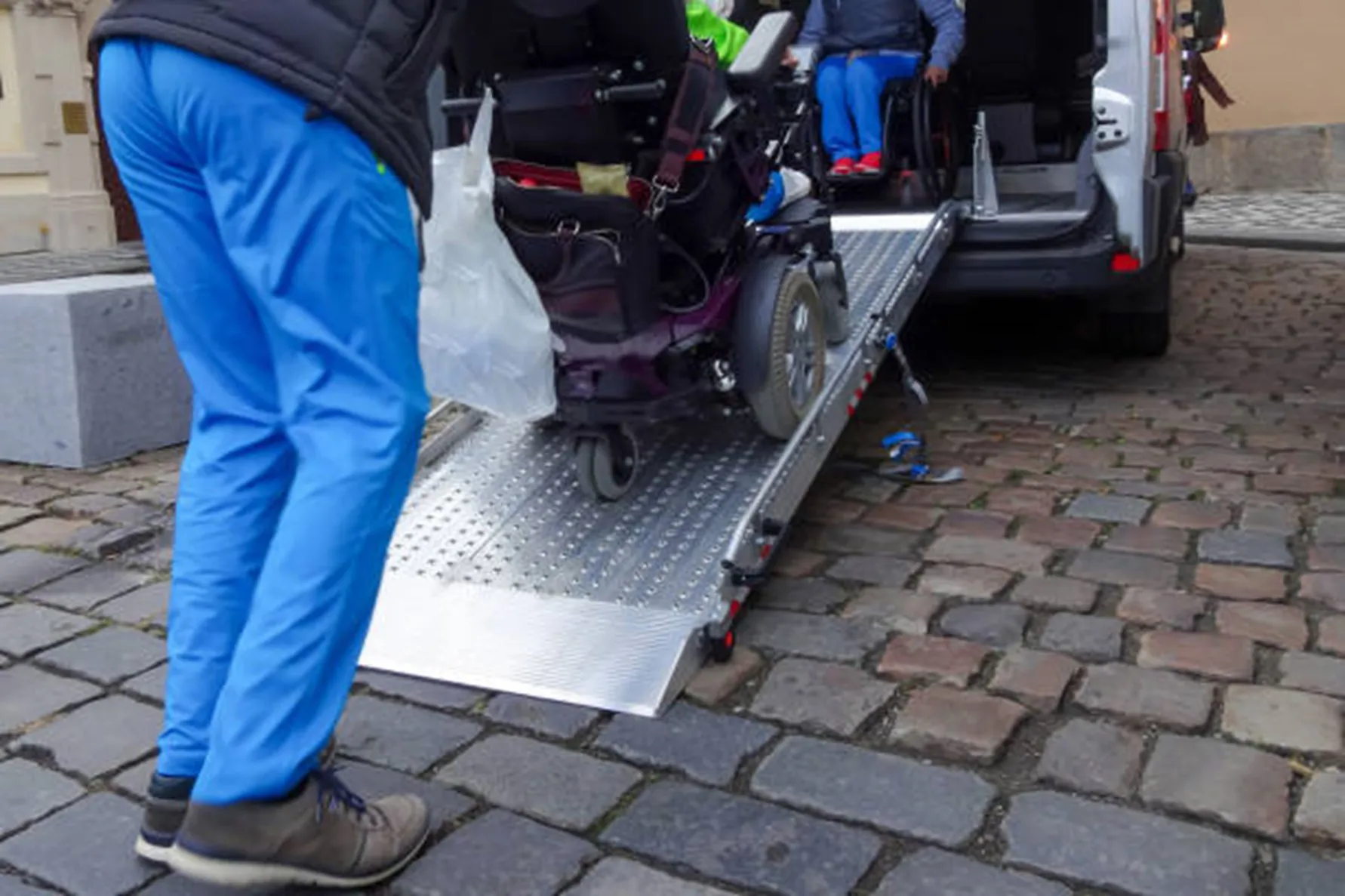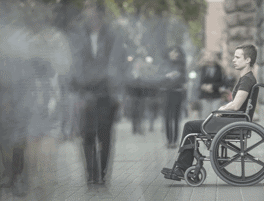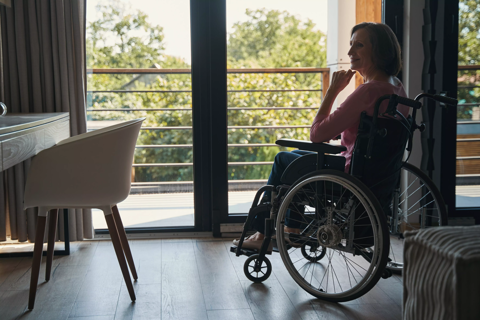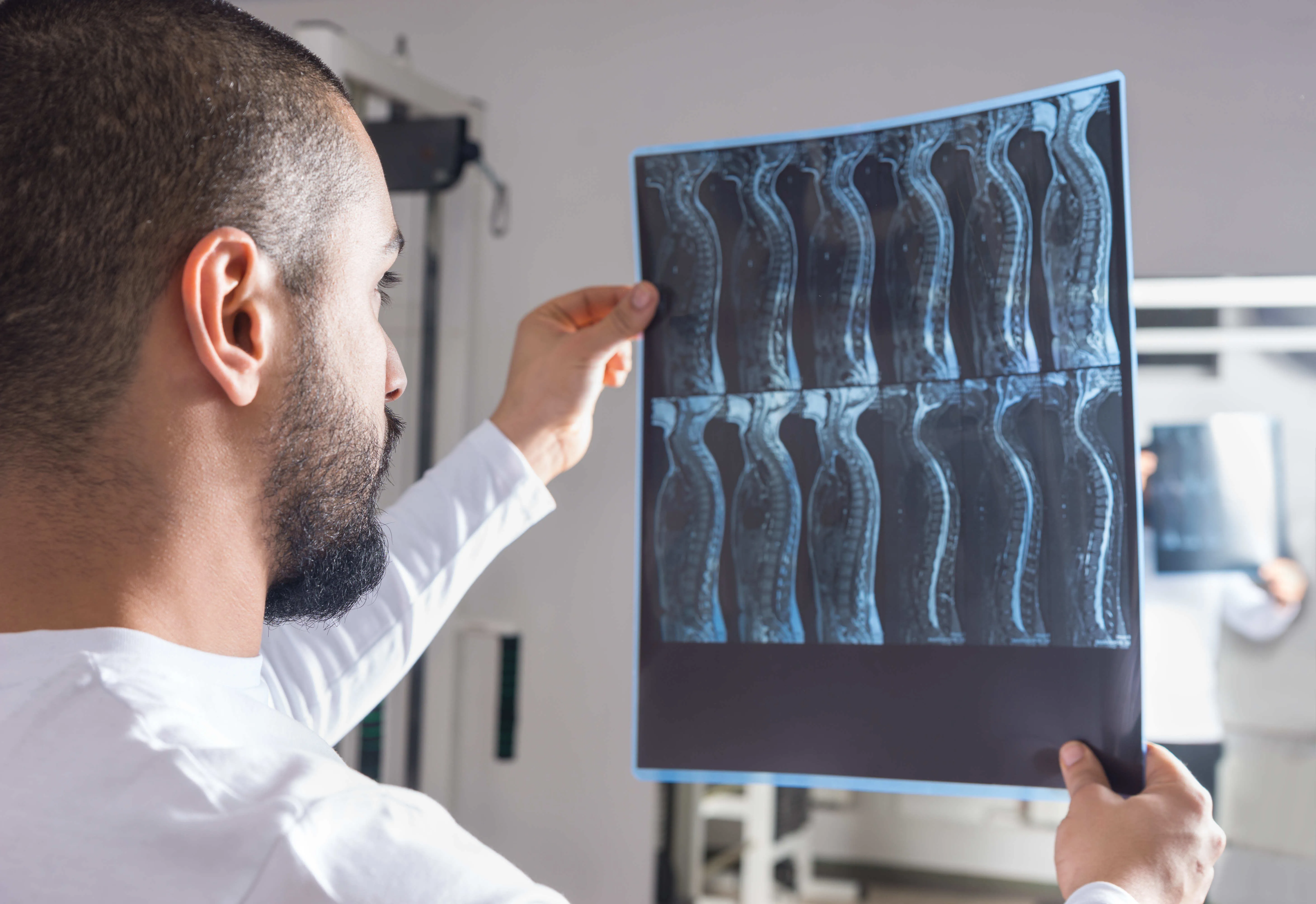Common Causes of Spinal Cord Injury
Sometimes, spinal injuries can be caused by a physical trauma, which in turn can cause people to experience a back or neck injury that changes many aspects of their life.
There are a few common causes of spinal injuries. These are as follows:
- Falling over
- Accidents on holiday
- Equipment that is defective
- Sports related injuries
- Road traffic accidents
- Accidents at work
What Does Spinal Cord Injury Compensation Cover?
At Simpson Millar, we are here to help with your spinal cord injury claim.
With compensation, you can gain access to some of the following:
- Rehabilitation
- Psychological assistance
- Physiotherapy
- Speech and language therapists
- Pain management professionals
- Accommodation adaptions
- Alternative accommodation if necessary
- Assistance with transport costs
The amount of care required is something that you will need to be consider. This is where a case manager can help you coordinate everything with as little hassle as possible, including purchasing items as needed.
Sometimes, the care that people need is urgent. If this is the case, and if the other party has already accepted liability for your spinal injury, Simpson Millar can help to try and secure interim payments at the earliest opportunity.
This way, you can get the rehabilitation and care you need even before your case is fully settled.
Who pays for Adaptations to my Home after a Spinal Injury?
When you make your claim for compensation, the insurance company representing the other side will be asked to provide money to obtain a case manager.
The case manager is there to look at your current needs and plan out what needs to be done urgently. This includes getting into and around your property, and being able to live as functional a life as possible.
When a case manager has been brought in, you can also choose to get an accommodation expert to help you understand what you need and how much it may cost in terms of adaptations. In addition, they can help you figure out if you need alternative accommodation, if you cannot stay in your home anymore.
If your case manager decides that these adaptations are urgent, the insurer may be required pay these costs upfront, before final settlement of your claim.
The effects of a spinal cord injury can be catastrophic, for the person who is affected and their family and friends.
That is why it’s essential that you can still live a high-quality life, independently. This means getting all the accommodations and adaptations you need in order to live your life and go about your day as normally as possible.
For example, you’ll need to access to your toilet and bedroom, which are often in the first floor of a house. This is something to keep in mind, as you may need adaptations like stairlifts in order to access these areas of your home again.
Whilst you may have support from a rehabilitation and occupational therapy team at your hospital, they might not be able to offer the practical aftercare you need.
For this reason, it’s essential for you to try and get the support you need from a case manager and an accommodation expert.
What adaptations may be needed after a spinal cord injury claim?
Even if you currently live in a ground floor property, you might still require some adaptions to help you navigate your home.
Some of these adaptions are as follows:
- Making doors wider so they are wheelchair accessible
- Making the kitchen worktops and surfaces lower
- Ramps to enter your property
If you have any questions or concerns about making a claim so you can adapt your home, get in touch with the team at Simpson Millar for a free claims assessment.
How Spinal Cord Injury Compensation Is Calculated
The amount of compensation yyou will receive for a spinal injury claim depends on the type of injury you’ve experienced, how severe it is and the amount of pain, suffering and loss of amenity you have experienced.
The compensation settlement should help you to access the treatment you need for of your injury. It should also help you get back to the financial position you were in before the injury.
If you get in touch with our team at Simpson Millar, we can help you get an assessment with an independent medical professional, to lay out your injury and care needs. When we have this information, we can help you understand what you need to get back to your life, and the costs associated with this.
These costs could include the following:
- Professional care and assistance, including workers, PAs and people who can help you maintain your property;
- The care that you have received from your friends and family;
- The cost of counselling;
- Any private medical treatment you’ve had to get;
- Any ongoing rehabilitation and therapy you may be having;
- The adaptations to your home;
- Mobility aids and costs associated with this;
- Technology and equipment to make your life easier;
- Transportation costs;
- Increased costs of holidays.
When we work out your claim, we’ll also keep in mind the financial impact of your spinal cord injury, such as the loss of earnings you’ve had and will have in the future.
We’ll also look at other expenses you’ve had to deal with due to your injury, like prescriptions and the costs associated with travelling to medical appointments.
In short, with a thoroughly-valued compensation settlement, you can begin your recovery, and you can live as well and independently as possible. In addition, if you need more help while your claim is still ongoing, we might be able to get an Interim Payment on your behalf.

Can I get Interim Payments?
When someone has a spinal cord injury, they’ll likely have some urgent needs. For this reason, we’re here to work hard for you to get you compensation before a final amount has been agreed.
These payments are called Interim Payments. Such advance payments may cover the cost of the treatment and care you need whilst your claim is still ongoing.
If the other party who is responsible for your spinal injury admits liability in your claim, we will be able to request interim payments. Any amount that you receive will be deducted from your final compensation payment.
However, the other party’s insurer may deny responsibility for your accident. In this case, we might not be able to get compensation for you until the case is settled
For this reason, we always aim to work hard and pursue the party that is to blame, so that we can ensure liability is established as soon as possible.
At Simpson Millar, as Serious Injury Solicitors, we understand that the long-term effects of spinal cord injuries are extremely difficult for the victim of the accident and their family and friends.
That is why we’ll always try and factor in the impact of the injury on others when working out how much compensation you’re entitled to.
What are the different levels of payouts for Spinal Cord Injuries?
How much compensation you are awarded for your spinal injury very much depends on the severity of your injuries, with injuries at the very top of the scale being in excess of £3 million.
If your spinal cord injury wasn’t your fault at all, you should be compensated for the difficulties and complications you’ve experienced. If you have sustained a spinal injuriy, you might be wondering exactly how much compensation you might get. However, this is a difficult question to answer, because it depends on your particular circumstances.
In the event that your personal injury claim is successful, you’ll be given compensation for the pain, suffering and overall losses you’ve had to deal with – which are known as “general damages”. In both England and Wales, there are guidelines which are there to establish how much compensation you should be awarded for these “general damages” in spinal cord injury cases.
Naturally, not all spinal cord injuries are the same. Therefore, The Judicial College Guidelines are there to categorise spinal injuries based on how severe they are.
For example:
- Most Severe: You could be awarded £240,000-£320,000
- Moderately Severe: You could be awarded £160,000-£240,000
- Moderate: You could be awarded £30,000-£160,000
It’s important to note that these are average amounts that you could receive. As mentioned above, any compensation settlement very much depends on the circumstances of your unique course.
For more information, please read the Spinal Cord Injury Compensation Payouts Guide.
Injuries which result in someone being unable to work again can be a significant element of the compensation. In addition, the costs of care, support, therapy and treatment are also essential when calculating how much compensation to claim for.
There may also a claim for needing a ground floor or other suitable adapted accommodation.
|
Condition
|
Severity
|
Minimum Award (£)
|
Maximum Award (£)
|
|
Quadriplegia
|
N/A
|
347,122
|
477,293
|
|
Paraplegia
|
N/A
|
277,698
|
390,513
|
|
Back Injury
|
Most Severe
|
130,170
|
260,340
|
|
Back Injury
|
Severe and Serious
|
78,102
|
121,492
|
|
Back Injury
|
Moderate
|
30,373
|
47,779
|
Financial Loss in Spinal Injury Claims
When you are the victim of a spinal injury, you may also experience financial losses as well as the physical injury itself. Spinal cord injuries can result in permanent disabilities such as loss of control of the bladder and bowels and inability to move. These complications may mean that you’re unable to return to work. As we mentioned above, you might also require home adaptations for your condition.
In addition, in spinal cord injury cases, there is often a need for ongoing care and rehabilitation, as well as the help you may need around the home. This can all be extremely expensive, which can cause you and your loved ones to struggle financially overall.
Therefore, you will be awarded compensation for your past and future losses due to your injury, which is known as “special damages”.
When it comes to the final compensation settlement, your “general damages” and “special damages” are added together.
This final compensation settlement could be as follows:
- The Most Severe Injuries: You could be awarded £3 million or more
- The Moderately Severe Injuries: You could be awarded £1 million or more
- The Moderate Injuries: You could be awarded up to £1 million
Step by step guide to the process
When you get in touch with our team of Serious Injury Solicitors, the process will look something like this:
- Your Free Claims Assessment: At Simpson Millar, we offer free claims assessment and legal advice. This means one of our Serious Injury Solicitors can discuss your spinal injury with you, with all the details, so we can help you claim compensation.
- The Investigating State: If we decide to take on your case, you’ll be assigned a Solicitor, who will start investigating what happened.
- Getting the Medical Experts Involved: We’ll then gather evidence for your case, including photos, CCTV footage, statements and more. We’ll also arrange for you to see one or more independent medical experts, so they can create a medical report which we can use to support your claim.
- Calculating Your Compensation: Once we have obtained all of this evidence, we’ll be able to calculate the value of your claim and what treatment, rehabilitation and care you may require.
- The Interim Payment: If you need treatment straight away, we can ask the other party’s insurer to send an interim payment, as long as the party has accepted liability – this can be partial or full.
- Providing Support: We aim to support you throughout every stage of making your claim.
What Evidence Is Needed for a Spinal Injury at Work Claim
If you sustain a spinal injury at work, you need to tell your employer immediately, and make sure it is fully recorded in your company’s accident book. It is also important to seek medical attention as soon as possible in relation to your injury.
There are other useful types of evidence you may need when making a compensation claim.
These include:
- Photos and videos of the scene of the accident
- The contact details of any witnesses
- The records of any financial losses you’ve had to deal with since the injury
- Details of the medical treatment you’ve received
What To Do after a Spinal Injury at Work
It is essential to collect as much evidence as you can after suffering a spinal injury in the workplace. This can be crucial when you’re planning to claim compensation.
Here are some of the steps you can take after sustaining a spinal injury at work:
- Report about the Accident: Tell your employer straight away, and make sure it’s entered into the accident book.
- Collect the Details of any Witnesses: If other people have witnessed your accident, get their details so they can back you up.
- Take Some Photos: Having photographic evidence can be essential in spinal cord injury claims, because they can illuminate any hazards, and you can see what the accident scene looks like right after the injury was sustained.
- Go to a Doctor or Hospital: When you’ve suffered a spinal cord injury, you need to get checked out medically, so you get the right treatment, and so your accident is included in your medical records.
- Record your Financial Losses: Make sure you record any financial losses you’ve had to deal with after the spinal cord injury you’ve sustained. These could include:
-
- A loss of your earnings
- The cost of prescriptions
- Travelling expenses
- Fees for care and assistance
It’s a great idea to keep receipts and other records as evidence, as these can help us calculate how much you can claim for.
Are there any time limits?
There are time limits to keep in mind when you’re claiming compensation for a spinal cord injury. You must make your claim within 3 years of the day you sustained the injury.
However, there is one exception: if you’re claiming for a child before they turn 18, or if you’re claiming on someone else’s behalf because they don’t have the mental capacity to claim on their own.
How can Simpson Millar Help you
We always fight hard to get the best results for our clients, and though most cases do not go to court, we have a skilled team of Solicitors and Lawyers nationwide who will fight for you and represent you at Court if needed. We can also advise you on the likelihood of your claim being awarded compensation, and you could be eligible for a No Win, No Fee agreement.
We’re always open for you – call our friendly team on 0808 239 2778 and make the first step towards justice.






